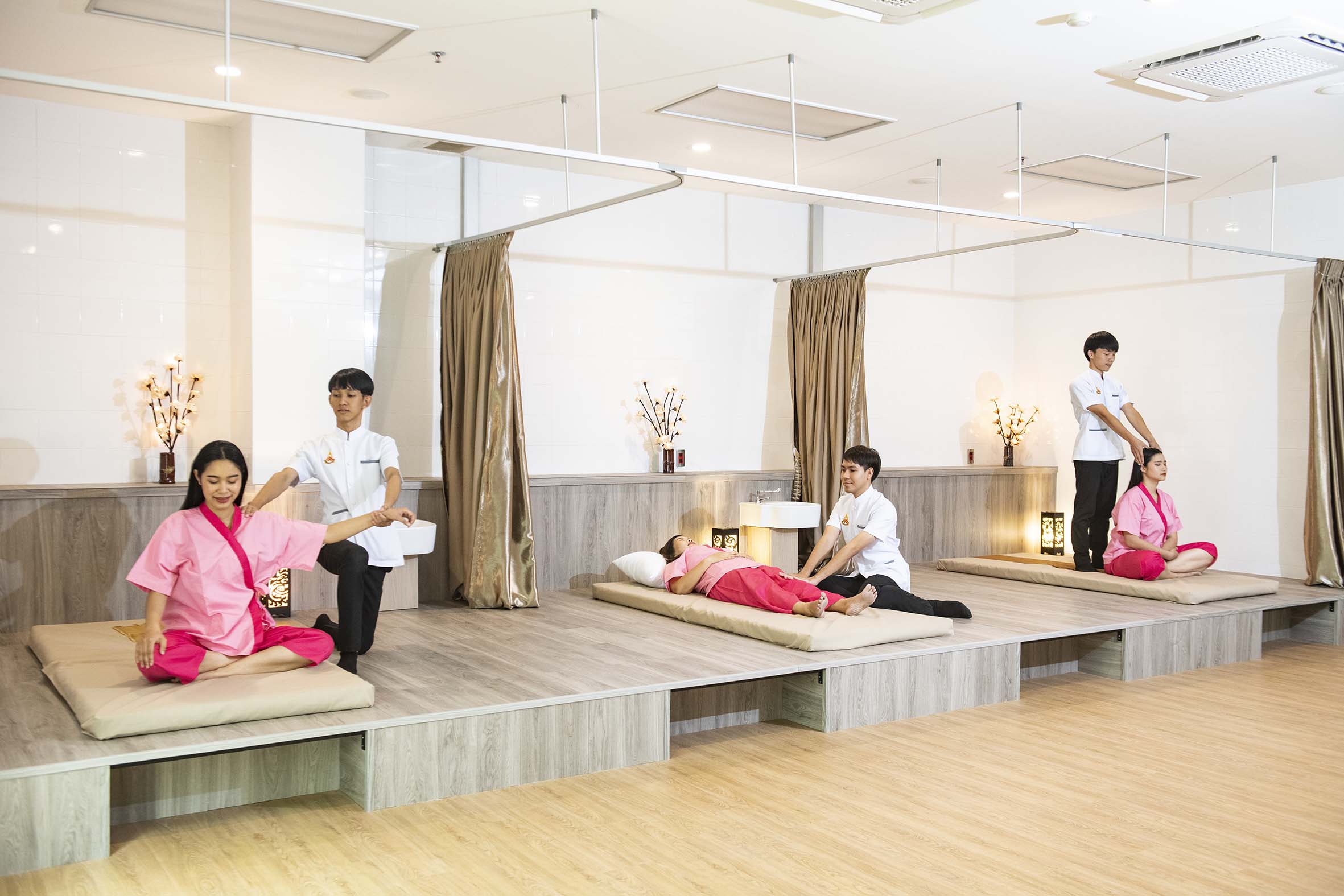Applied
Thai traditional
medicine - Thais
often prefer locally prepared remedies,
treatments by local healers and
traditional massage therapy to hospitals
and doctors. Massage is regarded by
villagers as an important form therapy.
Illness has traditionally been blamed on
spiritual possession, fear, problems,
and an imbalance of elements on the
body. In the Northeast rituals such as
bai sir sukwan
(“tying” the soul back into
a an ill or disturbed person) is an
important form of healing. -
Traditional herbalists, like Thai
masseurs and masseuses, have a guardian
spirit they pay homage to: Shivaga
Komarpaj, the Ayurvedic practitioner who
treated the Lord Buddha and is
considered the father of Thai
traditional medicine,. An important
ritual among practitioners of
Traditional Thai Medicine is the wai
khru, or paying homage to Shivago and
the unbroken lineage of masters who have
kept the tradition alive. The devotee
makes prayers and offerings (usually
incense) at an altar, taking care never
to turn his or her back on it after the
ceremony. The wai khru which opens with
the words Om namo Shivago, is performed
in schools and massage facilities
throughout the land. - There are
three basic ways to classify medicinal
herbs: those taken internally, applied
externally, and inhaled. Many, though,
fall under two or even all three of
these classifications. Herbal drugs can
have from two to as many as 40 different
ingredients, which are also classified
by species and medicinal attributes.
Then, there is Thai cuisine, which,
while famous for its flavors, is also
known for its healing properties. As the
different dishes can kindle and arouse
as well as soothe the senses, the
different spices and ingredients are
again included to achieve a harmony of
the body’s elements, thus serving
as a preventative or curative of
different symptoms and
ailments.
Earth, wind, fire, and water. No,
not a band’s name, but the four
elements that must be balanced for a
person to be healthy. This is the basis
for Thai traditional healing. As early
as the third century BC, Indian Brahmins
and Buddhist monks traveled to Thailand.
As well as the introducing new religious
beliefs, they brought with them a
holistic approach to healing, Ayurveda,
which is based on maintaining a balanced
flow of energy through meridians in the
body and includes massage and herbal
remedies. As the region’s name,
Indochina, so well implies, the Chinese
also had a strong influence on Thai
culture, bringing with them their
treatments, particularly acupressure and
acupuncture, as well as a cornucopia of
animal and herbal
concoctions. Thus, Thai
healing evolved with the integration of
these systems and ethno-practices being
performed by local healers, shamans, and
midwives. Based on a holistic approach
that includes internal, external, and
psycho-spiritual disciplines, or herbal
potions, massage, and meditation, this
medical philosophy focuses on four
elements, earth (din), water (nam), wind
(lom), and fire (fai), and achieving
body and mind
harmony. The
process of diagnosis and treatment by a
"medicine doctor" (herbalist)
follows the Ayurvedic model: the cause
of the disease as well as the elemental
makeup of the patient is analyzed. All
things in the world and in the human
being is made up of the four elements:
fire, water, air and earth. Each element
rules specific body parts and functions,
and an imbalance of an element manifests
as a disese of the areas it is concerned
with. For example: 1) A disharmony of
the earth element may manifest as a
disease of the organs, bones or muscles.
2) A disharmony of the water element may
show symptoms such as urniary trouble,
blood or lymph disease. 3) A disharmony
of the air element may show as
respiratory problems like bronchitis,
dizziness, stiffness, arhtiritis. 4) A
disharmony of the fire element may cause
heart
problems. In
addition to treating various symptoms
and ailments, many Thai medicinal herbs
are used to spice up the various dishes.
Thais love to combine very different
flavors, hot, sour, sweet and bitter,
which create culinary delights that are
also curatives, as they balance the four
elements: wind, water, earth, and
fire.
Philosophy and
Reasoning Behind Thai Traditional
Medicine
Thai Medicine
Diagnosis and
Treatment
Traditional
Thai Medicines